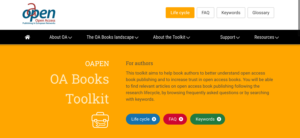We’re starting a new series called ‘A Day in the Life’. Over the coming months you will be able to catch a glimpse of what our Research Support Team gets up to in a typical day.

Hello! I’m Meg and I joined the OU and the Research Support Team in April 2020. Prior to this role I was a researcher and graduate teaching assistant at Edge Hill University. I managed to visit the OU Milton Keynes campus for my interview in March 2020 but fun fact, I have never actually stepped foot in our office or the Library for that matter!
Despite Covid restrictions I have had such a great year working with the team. This role has opened my eyes to just how much goes on behind the scenes in academic research.
8:30am – Wake up, have breakfast (I’ve been enjoying baked oats lately, it’s like having cake for breakfast!)

9am – Open my laptop and start the working day. I always get going by working through my personal emails and our group inbox which is where you can get in touch for any general research support enquiries.
10-10:30am – ORO Weekly Catch Up. Open Research Online (ORO) is the OU’s Open Access repository of research outputs from our research community. We have a team dedicated to maintaining and verifying deposits on ORO and this is our weekly drop in session if we want to share anything we’ve found challenging or pose any questions we may need answering.
10:30-11:30am – TEAM GAMES! Since we are all working from home we have set up a team games session every 5 or 6 weeks. We have been following the House of Games theme and it is a really nice way to take a break and have some fun 🙂
12:30pm – Lunch. I try to move away from my screen at lunchtime and the weather has been lovely recently so I opted for a walk with my dog Bella.

The rest of my afternoon was free from any meetings. When I have a few hours of time I like to time block as it keeps me productive and on task. I generally keep the blocks at 45 minutes each and try to get up and make a drink or walk around the house after each one. This particular day I was working on our Open Research Data Repository (ORDO), researching different publisher’s policies on creating new journals, and prepping some social media posts.
I have been learning the ropes with ORDO for the past few months. Researchers can use ORDO to store their data so it can be used freely by the public. Our team maintains ORDO by running thorough checks of all the deposits made and working with the users to ensure each deposit fulfils the criteria.
We had a general research support query come in asking for advice on how to set up a brand new academic journal. So I was tasked with conducting some research into different publishers policies to find out what the process may entail to give the academic a starting point.
I am a Social Media Hero for the OU Library. This means that I have a designated day per week to schedule some posts to go out to our Twitter and Facebook accounts. For the final hour of my working day I brainstormed some post ideas and also scheduled some posts ready for the following Thursday.
We hope you enjoy this new series of Day in the Life posts from our Research Support Team 🙂











